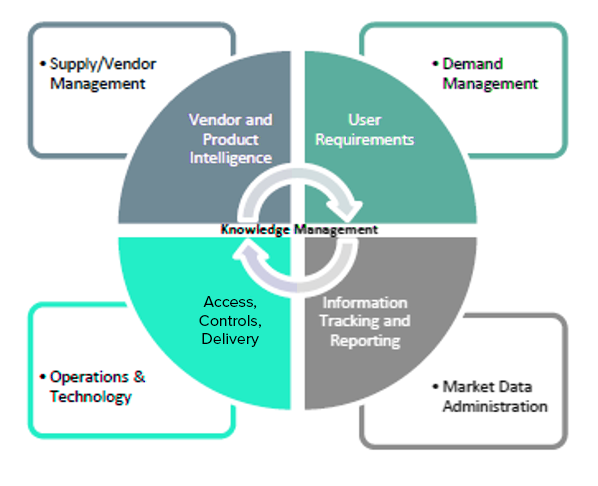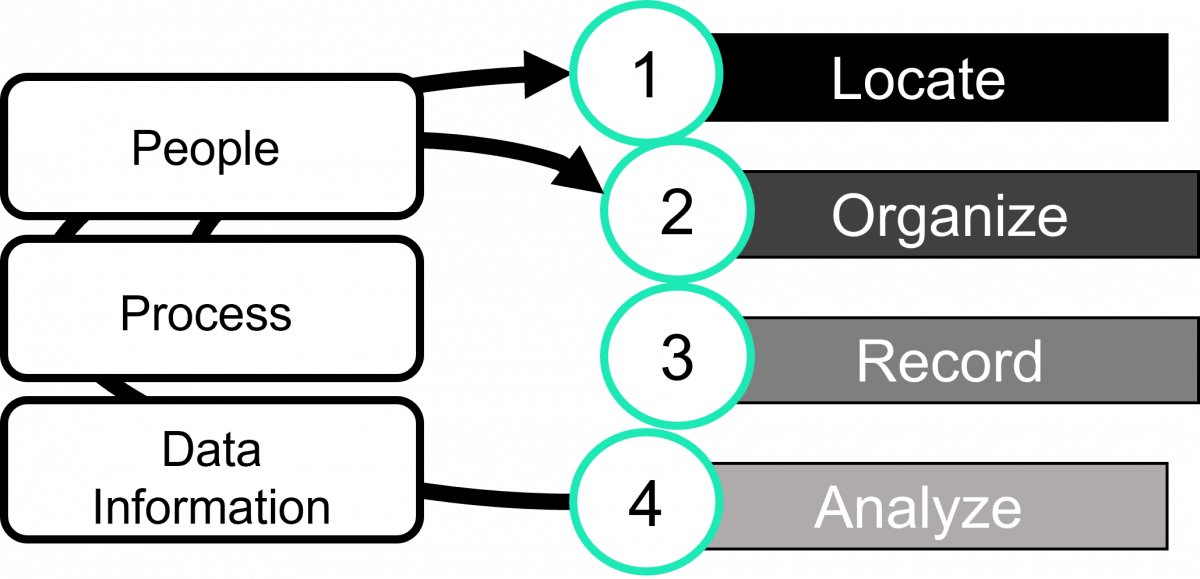SEC Division of Examinations Releases 2026…

Balancing Cost-Savings and Long-Term Effectiveness to Harness the Full Potential of Market Data Services

The Market Data Management function is currently suffering from what some might describe as an identity crisis. Its purpose and value in many organizations is currently being whipsawed by strategic decision makers taking a one-dimensional approach to the discipline – save costs. Organizations that are taking this limited perspective are greatly restricting the influential capacity of a properly equipped team, skilled in the art of optimizing market data services and vendor relationships. The purpose is lost to those that are disbanding Market Data Teams, and the value is lost to those that under-allocate human and technical resources to effectively manage the program. In those cases, the function loses its “identity” with the benefits being underestimated, leadership hesitating to invest in a strengthened role, and objectives reduced to quid-pro-quo strategies which cannot realize any long term value.
Viewed through the limited lens of cost-savings, market data management is caught in a catch-22 - funding and executive support emerge when savings are found, but savings can only be found when funding and executive support for a program exists. This results in a stagnating environment where market data management strategies drift and languish until a “shock” occurs, including:
Unfortunately, when a “shock” does occur, if the market data team hasn’t established themselves as best suited to address and recommend strategies, they subsequently become pinned to unrealistic expectations by uninformed bravado from Leadership that demand “cut costs by 20%”; or they are overrun by overzealous groups that swoop in with their robotically misplaced, one size fits all, tactics - “let’s look at our Top 10 vendors, dissect our agreements with them, and negotiate better deals”. The objective, in both of these trite approaches – achieving a statistical measure (cost percentage reduction) with little regard for long term program effectiveness. Without a strong value proposition, Market Data Management practitioners get swept into the fray, inherit unachievable goals, and in the extreme become the targets of austerity measure themselves.
This alarming scenario will happen where strategic decision-makers are disconnected from the realities of market data services, the unique contract terms undertaken, the users and their requirements, and the technology employed to distribute critical data. This paper discusses those issues in demonstrating how the oversimplification of market data management by those individuals dramatically increases operational risk, and greatly dilutes the returns available from a strong market data function.
Before continuing, it’s necessary to baseline what is meant by Market Data Management, and why it demands its own attention as a core service within Financial Services Firms.
Market Data Management is the administration and stewardship of market data services and third party relationships resulting from the procurement and usage of market data by a Firm.
Market Data is the broad term used in reference to the financial information necessary to research, account for, analyze, and trade financial instruments of the world's markets across all asset classes.
Market Data professionals have long argued that their functional role is a complex, dynamic, and voluminous discipline requiring specialized skills and tools to achieve the extraordinary value and benefits available. However, the scope, skills, and tools required for success are ambiguous to non-market data literate staff, which creates a debate amongst firms on where the function is best positioned.
In every case above we argue the former to be representative of a complex contract life cycle approach, while the latter is a commoditized view assuming programmatic, “production-line” thinking. This “commoditizing” approach has been recently observed by several Canadian sell-side firms whose strategies shifted to more minimalistic approaches:
Too often we see firms take an oversimplified view of the function with the intricacies lost in 3 common “myths”.
This thinking is an enormous distraction for market data professionals as it diminishes the debate about effectiveness I.e. “how to apply the minimum standard required to negotiate a contract”. This opposed to the ongoing, strategic relationship a Market Data Team manages internally (with business units) and externally (with critical Suppliers). Anecdotally, one of the authors of this paper led a study of daily activities performed by a Market Data Relationship Management team to conclude that less than 12% of their time was dedicated to the Procurement activities. Contract Management, Reporting/Analytics, and Relationship Management activities were in the top 3, characterizing the value-add activities that extend beyond the generic Procurement or Strategic Sourcing philosophy.
Market Data Teams are too often expected to find savings rather than manage relationships and facilitate effective decision-making. This philosophical difference means short-term tactics are encouraged (to demonstrate instant bottom-line results) VS. long-term strategic programs (designed to optimize market data services usage).
Many firms are shocked by the reality that there are greater than 500 Vendors and greater than 2000 products globally within the Market Data space. Even when they come to acknowledge this to be true, they still recoil back to their top 10 lists (their comfort zone of available information) as the relevant representative sample from which market data strategy can be driven, through a crude “80/20” argument.
Lost in that sweeping statement about scope coverage is the necessary understanding of user requirements, financial obligations, and strategic alignments created with third party suppliers. All of which creates risk for the firm. That risk is only manageable with proper tools (e.g. Inventory Management System) and processes (e.g. service revalidation, change monitoring and tracking, reporting) driven through skilled business and vendor relationship managers. To correlate staffing and effort to only 10 Vendors severely impairs transparency and a firm’s ability to:
Arguably, one of the reasons most struggle with the value afforded by strong market data teams is due to “where” the Market Data function exists within a firm. It is neither an IT, Procurement, or Finance Function. It demonstrates characteristics of all three, with the added dimension of providing a high degree of relationship management that touches all parts of the firm – market data practitioners serve as the bridge between Vendors and
Internal Stakeholders (Users, Technology, Operations, Legal, Finance, HR, Senior Management). Given the broad range of areas it touches, firms
struggle to understand where it fits best, and often in the end, the discipline takes on the qualities of the group they fall under. This serves to re-inforce the identity crisis that makes market data management reactionary, instead of actively executing optimization practices.
A properly resourced Market Data Management Team offers incredible value in the form of:
Cost-savings should be viewed as a by-product, not the end result, of effective market data management. Through spend transparency, optimized usage, and clear decision-making at a strategic and tactical level, appropriate spend becomes the objective. With the emphasis on why a Top 3 operational expense item (and the resulting relationships) occur, Financial Services Firms can better adapt their cost structure to suit trading and investment strategies that maximize returns.

To that end, Firms need to re-think the manner in which they structure the market data function to:
A more dynamic discussion is needed to explore outsourcing the administration function (managed services); spend and usage analysis (tracking and measurement solutions); structure and authority (governance); and emphasis on Users (or Demand Management).
The effort, time and cost required to maintain Market Data Services Inventory and strong relationship practices as a business support function is substantial; however, the impacts of mismanaging Market Data Inventory may be much worse – noncompliance, redundant/ duplicate services, reputation, and contract breach, are among some of these risks. It’s proven that taking a centralized approach by assembling the unique skills will generate considerable benefits.
The human element (competency) is critical given the complexities, volume, and user interaction that market data contracts represent. The below diagram depicts an oversimplified view of the knowledge management activities in managing market data services (and contracts) demonstrating where most Firms miscalculate on the structure/skills required to deliver high quality results.

Figure 1 – Simplified view of Knowledge Management Activities (in Market Data Management)
The diagram illustrates the classic challenge that non-market data professionals (Procurement teams, individual business units, and Finance in preparing annual Budgets) face – they lack the wherewithal to execute the research, shown as a loop-back to either the LOCATE or ORGANIZE step, that is often required. During the course of services/contract analysis, illogical or incomprehensive results will arise, and non-market data literate groups have neither the cycles nor the expertise to resolve the gaps. Pressured to find results or complete a task, the tendency of non-market data literate staff is to make assumptions or underestimate the missing information as immaterial. The leg-work is sacrificed for the sake of expediency, rendering poor information that affects TENS of millions of dollars. Only properly skilled Market Data Teams can best determine the level and degree of investigation required to fill unexplainable gaps that are bound to occur due to: timing, transaction volumes, errors and omissions (internal and external), and even currency fluctuations.
Data and analytics have transformed the business landscape. Market Data Management has an active place in that change to help strategic decision makers understand what, where, how, and why information moves within an organization using a cost management lens.
By developing skilled and properly equipped market data specialists, greater capacity to navigate the subtleties of third party technology and data sources becomes available.
Firms are therefore encouraged to:
1) Assess the importance of
2) Take action by
Sia Partners offers Market Data experience with proven solutions that help our clients address their most complex Market Data Management, Governance, and Risk Management issues. Our focus is heavily concentrated in the commercials and cost management aspects of those areas with programs designed to help Firms structure teams, augment resources, develop reporting/analytics, and drive value to the organization.
Discover how Sia Partners transformed its client's financial market data using a methodology of consulting and tools.
Senior Industry Expert | Toronto
Robert founded Market Data Company in 2012 as a global boutique consultancy providing financial firms with the unique capabilities and expertise required to support investment professionals.
